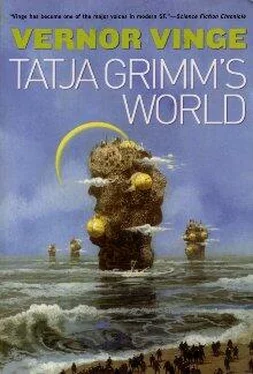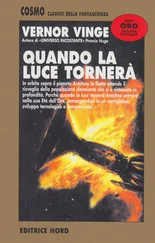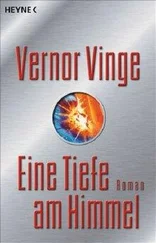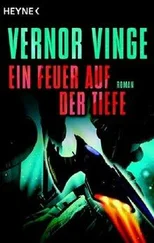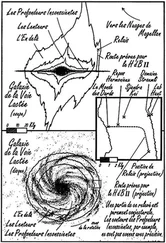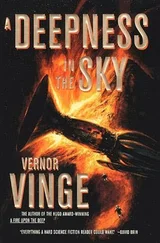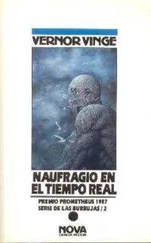Mikach interrupted with an inarticulate roar. He lunged to his feet, superstition forgotten. “You’ll die for this, infidel! To think we aided you because you ascribed your own treachery to your enemy.” Mikach turned to signal the doorman. There were armed Celestial Servants just outside. If he gave the word, there would be a massacre.
“Sit down, Mikach,” Jolle said. His voice was not remarkably loud, nor even tense, but the Archobserver turned back to face the crown.
Tatja took advantage of the break. “We aren’t foolish, Mikach. If we don’t return, the plan goes into effect automatically. So why don’t you do as General Jolle says? Sit down and hear the rest.” Mikach signed to the doorman, but he did not sit down.
“You know the power of a single high-explosive shell. Don’t doubt the accuracy of our fire. Though our guns are fourteen thousand feet below the target, my gunmen can put one out of two shells within one hundred feet of the mirror. In fact, the location of your Eye is one of the most precisely measured points in the world; the best mapmakers use its coordinates as a base.
“And I suggest that you do not attack our artillery pieces. They are vulnerable, but there are nearly two hundred of them. At this moment they are loaded and aimed. You could not destroy them all before they put out your Eye.
“Under this duress, we ask again: Let our party ascend to the Eye. We will not harm the instrument. Repara—”
“No! Better to destroy it cleanly than by taint.” The priest’s face was flushed and puffy. Behind him, there was a barely perceptible exchange of glances between Reformist Observers. They preferred taint to destruction.
It was Jolle who answered the dogmatism. “You blaspheme, Mikach. The face of God will still stand a billion light-years beyond your blue, whether your Eye is put out or spat upon. Spittle may be expunged, but if your Eye be destroyed, then you will be lost from God.”
It was a Reformist argument couched in Orthodox jargon. For a moment Mikach was silent. He realized that others were thinking what this dark-faced foreigner had just said. The priest’s face was calm again; only the trembling of his voice betrayed the struggle within. He neither nodded nor explicitly stated his submission, but asked, “When will you ascend, then?”
Tatja answered, “Sometime in the afternoon. Say twenty-six hours. We’ll stay here and rest until that time.”
Now the other nodded. “Very well. We’ll clear some quarters for you.” He leaned across the table, and for a moment his face twisted with the anger of a moment before. “My people will dedicate much of their remaining existence to punishing you.”
The generals smiled at this threat, made by the leader of a second-rate military power against the greatest nation in the world. Tatja didn’t smile. She respected the determination and technical competence that lay behind the Doomsday religion. Had she been nothing more than the Queen of Crownesse, this would have been a threat to fear. Mikach’s promise was the sort which starts crusades.
Someone had given him a crossbow. It was a powerful model, its cross-spars steeply angled. One full winding could shoot its entire six-bolt magazine. And each bolt contained enough explosive to put a hole through three inches of wood.
At the moment Svir felt no curiosity as to why he, who barely knew how to sight a bow, had been given the weapon. He had not noticed that out of the two-hundred-member party, only Jolle, Tatja, and he were armed.
Jolle and Tatja had originally planned to make the ascent alone, but the ingenious Doomsdaymen had made that impossible. The priests claimed that all the picture-making equipment was at O’rmouth for a general overhaul. This was plausible, since the observatory was too small to contain a machine shop. Unfortunately, more than a hundred Celestial Servants were then needed to carry the gear necessary to Jolle’s project. The climb would take two days, with stops at Doo’d’en outposts along the way. So there had to be a number of Crown’s Men along to watch this mob of potential saboteurs. Everyone was surprised when Marget demanded they all go unarmed. The Servants were pleased with the requirement, the Crown’s Men frankly angry.
If he had thought about it, Svir would have understood why only the three of them were armed … but he was thinking about very little.
For two days, they had walked up a steep tunnel toward the top of the world. Above the snowpack ceiling, the wind hummed endlessly across the mountain face. Where light holes punctured the roof, the hum became a scream. Sunlight glared brilliant through those holes, splashed whiteness on the figures trudging slowly upwards.
For a thousand feet at a time, the tunnel climbed so steep there were steps cut in the ice. Yet this journey was a walk in paradise compared to the climb that had faced the first explorers. They had gone across the top of the snow, through the wind, with no shelters along the way. The atmospheric pressure here was only one-fifth that at sea level. It was difficult to maintain body temperature, much less to work. If it had not been for what the Doo’d’en called the “perfume of life,” no amount of sacrifice or faith would have been sufficient to build the observatory and live there.
The perfume of life—to “heathen” chemists, it was simply oxygen. At sea level the partial pressure of oxygen was about three pounds per square inch. At O’rmouth it was 1.4. It had been known for almost a century that the partial pressure of oxygen determines whether the air can sustain life. Thus, though scentless, oxygen is the perfume of life. For the last forty years Doo’d’en had used differential liquefaction to produce large amounts of oxygen. The gas was compressed into containers and allowed to slowly escape—as perfume might from an aerator. With some skill, it was possible to raise the partial pressure of oxygen at the observatory from 0.7 to 1.4 pounds per square inch, even though the total pressure inside the observatory was the same as outside. The procedure was simple and effective. No hermetic seals were needed.
Thirty men pulled the carts carrying the oxygen tanks. The aerators could occasionally be heard behind the hum of the wind. For the benefit of the Crown’s Men, Tatja had insisted on bringing enough tanks to maintain a partial pressure of 2.0 psi. The enriched air made their climb possible. Barely. And after two days in march, the Celestial Servants seemed as fatigued as the lowlanders; the Servants were carrying the equipment and hauling the carts. Several times the group became so spread out that the aerators couldn’t cover everyone. Then, without any warning, walking became impossible, and Tatja or Jolle would push them into a compact formation and move the tanks so everyone was within ten feet of “perfume.”
Each step sent bright spurts of pain up Svir’s calves. Each breath burned at his lungs. At first, the task of walking had made it easy for him to retreat from the events around him. No more. No more. For the first time in twenty hours, Svir found himself facing reality. Ancho was dead. Cor was dead. He believed that. And now that he did, the hate could blossom. Profirio must die—not because he wished to kill millions, but because he had killed the most important person in the universe. By himself, Svir had little chance against the monster. But he had two powerful allies, and he had a weapon. For the moment, he had a purpose.
Where the tunnel cut near the surface, the roof was pearly bright. Elsewhere, the light was fading. The sun would be lowering now, its light shining but indirectly through the roof holes. And in some places, the tunnel was very dark. Algae pots were useless in this cold, and a torch would consume more oxygen than one hundred men. The men around him were shadows, bent to their own pain. He knew that Jolle and Tatja were somewhere behind the whole group. It was a strategic certainty that one of those men who appeared so tired was actually alert, calculating. Walking behind the rest, the queen and the alien could watch with sensitive eyes. If they did not discover Profirio, they at least would not be surprised from behind.
Читать дальше
